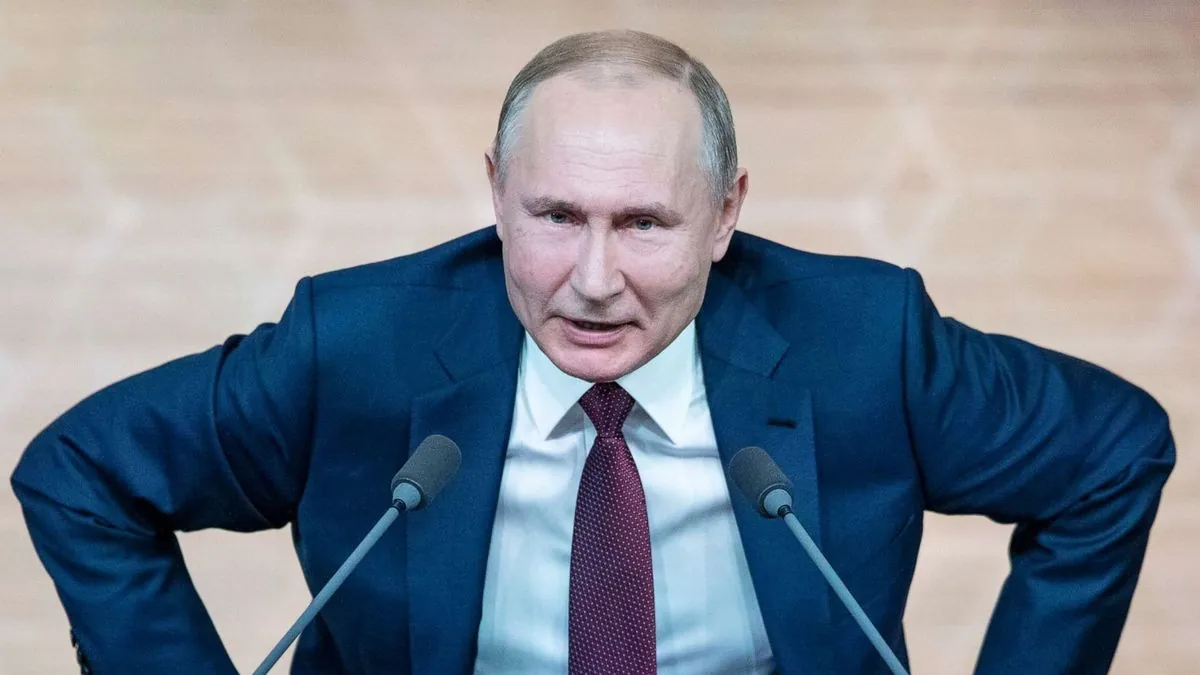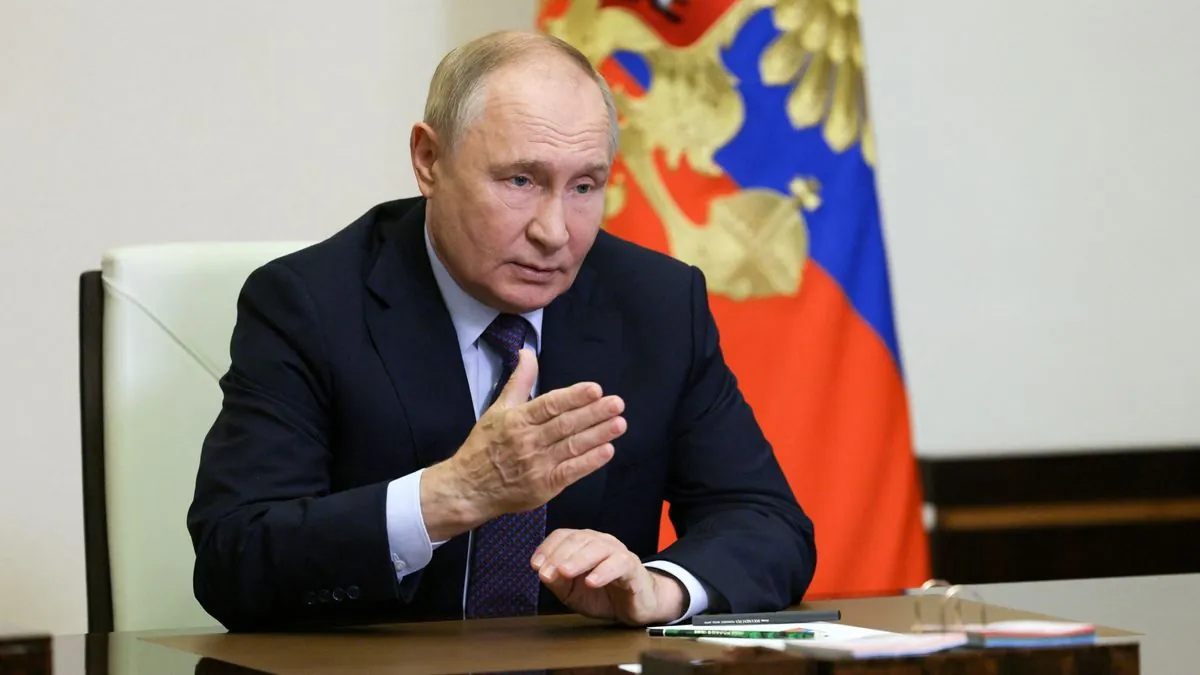Putin Alleges Western Persecution of Russian Journalists Amid Media Tensions
Russian President Vladimir Putin claims Western persecution of Russian journalists, while defending media freedom in Russia. This comes as Moscow bans entry for 92 U.S. citizens, including journalists and industry leaders.

Vladimir Putin, the long-serving President of Russia, has accused Western nations of "openly persecuting" Russian journalists. This statement comes amidst escalating tensions between Russia and Western countries over media freedom and access.
In an interview with Mongolia's Onoodor newspaper, conducted on the eve of his visit to the country, Putin asserted, "The West, which considers itself the standard of freedom, has launched an open persecution against Russian correspondents to hide from inconvenient facts and truthful information." This interview, published on the Kremlin's website, coincides with Moscow's recent decision to ban 92 U.S. citizens from entering Russia.
The list of banned individuals includes journalists, lawyers, and heads of what Russia terms "key military-industrial firms." Russian officials cited Washington's alleged "Russophobic stance" as the reason for this action. This move follows years of increasing media restrictions within Russia, particularly since the onset of its invasion of Ukraine in February 2022.

Defending Russia's media landscape, Putin stated, "In Russia, media are free. The only requirement for them is compliance with Russian legislation." He added that foreign correspondents in Russia should understand this principle. However, this claim contrasts sharply with international assessments of press freedom in Russia, which has seen a significant decline since Putin's return to the presidency in 2012.
The Russian leader accused Western countries of imposing "unfair restrictions" on Russian media abroad, including bans on some state-backed news outlets. "The only thing our media do is to convincingly convey the Russian point of view on current modern problems and processes taking place in the world," Putin argued.
In May 2024, Russian lawmakers passed a bill granting prosecutors the power to shut down foreign media bureaus in Moscow if a Western country is deemed "unfriendly" to Russian media. This legislative action mirrors similar moves in other countries, highlighting the global nature of media-related tensions.
"Russian journalists face direct censorship in almost all Western countries."
It's worth noting that the United States has imposed sanctions on several Russian state-run TV stations, accusing them of spreading disinformation to support Russia's war efforts in Ukraine. These actions underscore the complex interplay between media, politics, and international relations in the current global landscape.
As tensions continue to simmer, the situation raises important questions about the balance between national security concerns and the principles of press freedom enshrined in international human rights documents. The ongoing dispute between Russia and Western nations over media access and representation is likely to remain a significant point of contention in international relations for the foreseeable future.


































